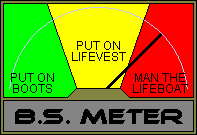- Joined
- Jul 31, 2006
- Messages
- 3,153
- Reaction score
- 12
I was just watching a segment on PBS tonight about the death penalty and the recent botched execution in Florida. It seems that states with the death penalty are having difficulty recruiting doctors to administer lethal injections and that the process of executing prisoners is being administered by prison guards who are not physicians. Apparently there are numerous examples of executions that have been screwed up by non medical folks. So would you volunteer to execute your neighborhood serial killer?




